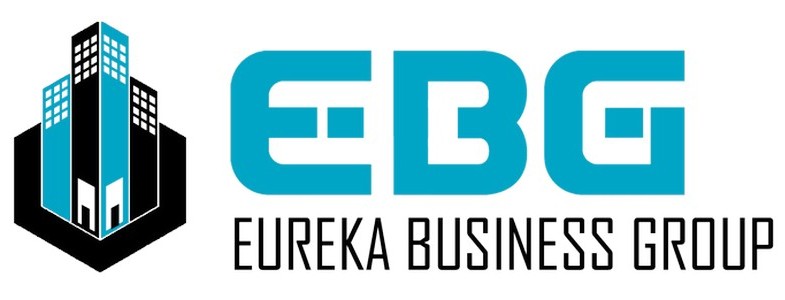- Home
- Retail
- Retail Investors Resources
- Why DFW Retail Real Estate Outperforms Other Texas Markets: A Data-Driven Analysis
Why DFW Retail Real Estate Outperforms Other Texas Markets: A Data-Driven Analysis
Why DFW Retail Real Estate Outperforms Other Texas Markets: A Data-Driven Analysis
In the competitive landscape of Texas commercial real estate, the Dallas-Fort Worth (DFW) metroplex has established itself as the undisputed leader in retail property performance. Despite strong showings from Houston, Austin, and San Antonio, DFW consistently delivers superior returns for investors and attracts premier retailers. This analysis examines the key metrics and underlying factors that explain DFW’s retail real estate dominance.
Population Growth Driving Demand
The DFW metroplex continues to experience extraordinary population expansion that outpaces its Texas counterparts. According to U.S. Census Bureau data, DFW added approximately 1.2 million residents between 2015 and 2023, representing a 16.8% growth rate. While Austin posted a higher percentage increase (22.3%), its smaller base means significantly fewer actual new residents (approximately 500,000).
This population influx translates directly to retail demand. Each new DFW household represents approximately $54,000 in annual retail spending potential, creating a massive $16.2 billion in new annual retail demand over this period. This expanding consumer base provides a solid foundation for retail property performance.
Superior Occupancy Rates and Rent Growth
DFW retail properties consistently maintain higher occupancy rates than other Texas markets. As of Q1 2024, DFW retail space posted an impressive 95.7% occupancy rate, compared to Houston (92.8%), Austin (94.1%), and San Antonio (93.5%).
Even more telling is the rent growth trajectory. Over the past five years, DFW retail rents have increased at a compound annual growth rate of 3.8%, outpacing Houston (2.9%), Austin (3.5%), and San Antonio (2.6%). This steady appreciation reflects the market’s robust demand fundamentals and limited new supply in established trade areas.
Economic Diversification Provides Stability
Unlike Houston’s energy-dependent economy or Austin’s tech-heavy employment base, DFW benefits from exceptional economic diversification. The metroplex hosts headquarters for 24 Fortune 500 companies spanning industries from telecommunications (AT&T) to transportation (American Airlines) to retail (7-Eleven).
This diversification creates a more stable retail environment less vulnerable to sector-specific downturns. During the 2020 pandemic, when Houston’s retail vacancy increased by 3.2 percentage points due to energy sector layoffs, DFW experienced only a 1.7 percentage point increase, demonstrating superior resilience.
Strategic Development Practices
DFW’s approach to retail development has been more disciplined than other Texas markets, particularly regarding speculative construction. Since 2018, DFW has maintained a development pipeline representing just 1.2% of existing inventory, compared to Austin’s more aggressive 2.1%.
This measured approach to new supply has prevented the overbuilding that periodically challenges other markets. While Houston added 14.2 million square feet of retail space between 2018-2023, much of it speculative, DFW added 12.8 million square feet with significantly higher pre-leasing commitments (average 76% vs. Houston’s 62%).
Retail Innovation and Format Evolution
DFW leads Texas in embracing evolving retail formats that have proven more resilient in the e-commerce era. The metroplex has pioneered the development of experiential retail centers like Legacy West in Plano and Grandscape in The Colony, which focus on creating destination experiences rather than traditional shopping.
The metroplex also leads in the adaptive reuse of retail properties. Since 2019, DFW has successfully repurposed over 2.3 million square feet of underperforming retail space into alternative uses like healthcare facilities, entertainment venues, and mixed-use developments, compared to 1.4 million square feet in Houston and under 1 million square feet each in Austin and San Antonio.
Superior Transportation Infrastructure
DFW’s exceptional transportation network creates retail accessibility unmatched in other Texas markets. With two major airports, an extensive highway system, and expanding public transit options, retailers enjoy superior logistics advantages and consumers benefit from easier access.
This infrastructure advantage is reflected in retail property valuations. Class A retail properties located within one mile of major transportation nodes in DFW command an average 18% premium over similar properties without such access, compared to just 12% in Houston and 14% in Austin.
Investment Performance Metrics
The ultimate measure of DFW’s retail real estate dominance is investment performance. Over the past decade, DFW retail properties have delivered an average annual total return of 9.7%, outperforming Houston (8.3%), Austin (9.2%), and San Antonio (7.9%).
Cap rates for prime retail assets in DFW have compressed to 5.1-5.8%, compared to 5.4-6.2% in Houston, reflecting investors’ greater confidence in DFW’s long-term growth prospects. Meanwhile, transaction volume in DFW retail properties exceeded $3.2 billion in 2023, approximately 40% higher than Houston despite similar metropolitan populations.
Conclusion: DFW’s Continued Dominance
The data clearly demonstrates DFW’s position as Texas’s premier retail real estate market. This leadership appears poised to continue as the metroplex benefits from ongoing population and employment growth, disciplined development practices, and innovative approaches to retail concepts.
For investors, developers, and retailers, the DFW market offers a compelling combination of growth potential and stability that remains unmatched across Texas. While other Texas markets present attractive opportunities, DFW’s balanced fundamentals and proven performance history make it the standout choice for retail real estate investment in the Lone Star State.



